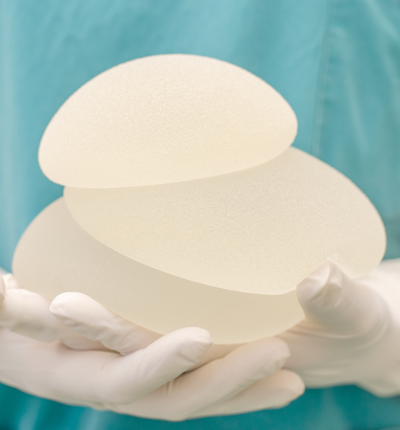
Breast implants linked to rare cancer
Lawyers urge the MHRA to take stronger action in relation to textured 'Biocell' breast implants, manufactured by Allergan.
Posted on 27 November 2018
Leading medical devices lawyers have urged the UK regulator, the MHRA, to reconsider the use of textured breast implants in the UK following reports that ‘Biocell’ textured implants, used by millions of women worldwide are linked with a rare kind of cancer.
French surgeons have been advised by the country’s devices regulator, France’s Society of Plastic, Reconstructive and Aesthetic Survey (SoFCPRE), to stop using the implants manufactured by Allergan plc – a company with headquarters in Dublin.
Lawyers urge the MHRA to take stronger action in relation to textured ‘Biocell’ breast implants, manufactured by Allergan, as per the French authorities.
Last week France’s SoFCPRE announced that it “now recommends” against using textured “Biocell” breast implants because of “over-representation” in cases of a rare form of breast implant-related cancer, anaplastic large cell lymphoma (BIA-ALCL).
The announcement by the French organization followed months of reporting by ICIJ media partners. Allergan told ICIJ that scientific evidence shows that its products are safe.
Reports in the Guardian newspaper, on 26 November 2018, suggest that post-implantation, a fibrous scar capsule forms around the implant, as the patient’s body responds to the foreign implanted material.
Research published as early as 1997, suggested that BIA-ALCL can form locally within the scar tissue capsule.
In the UK most breast implants are textured. The UK regulator, the MHRA acknowledges the risk of ALCL and estimates that risk of developing cancer as a result of their breast implant is very low, a chance of 1 in 240,000.
To date there have been 45 confirmed cases, with one death.
The MHRA updated its guidance for surgeons and patients on 26 November 2018, advising:
“ALCL is rare, but it is important healthcare professionals and patients who have implants know about it. If you develop a seroma, a breast lump or swelling around your implant more than a year after having the breast implant (regardless of how many years later), you should seek advice from your surgeon or clinic.
“If the surgeon or clinic which performed the original implant operation is no longer available, then you should see your GP for referral to another surgeon”.
In comments made to the Guardian, Allergan says it is ‘fully committed to investing in and supporting work to further understanding and increasing awareness of BIA-ALCL’ and has developed new product labelling.
Zahra Nanji, a solicitor in the Product Liability team at Leigh Day, commented: “Allergan’s stated commitment to supporting further research into ALCL is reassuring, as are the steps it has taken to improve product labelling. However, for those patients already implanted, particularly cancer survivors who had implant surgery after a previous cancer experience, Allergan’s commitment could ring hollow.
“The published data suggests that ALCL is a very rare type of cancer and that if the cancer is detected early it is very treatable and the prognosis is good; however, if patients and doctors have not been adequately warned about this risk then that failure to inform is troubling and the MHRA should, in our opinion, look again at the suitability of these types of implants.”
Leigh Day works extensively in the area of defective medical devices, including breast implants.

